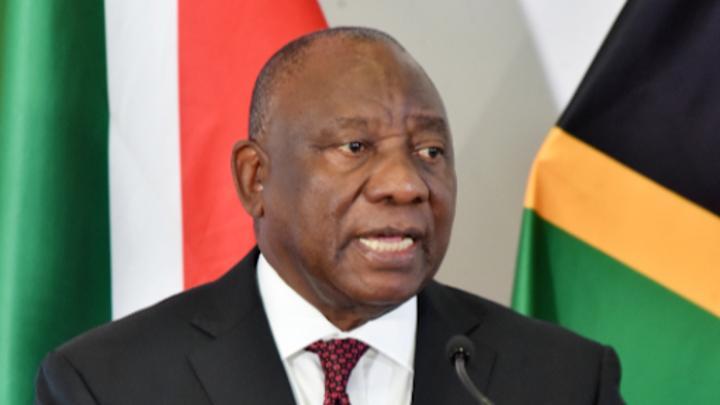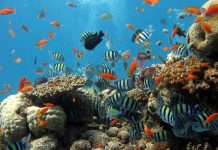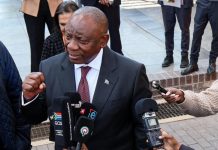Africa-Press – South-Africa. President Cyril Ramaphosa says Africa will never prosper if it continues to export raw materials and rely on factories far from its shores for finished goods and advanced services.
Speaking at the 2025 Liberation Movements Summit in Johannesburg, Ramaphosa said instead of exporting rock, sand and soil the continent should be producing and exporting the finished products the world needs.
The summit was attended by representatives from Zimbabwe, Mozambique, Namibia, Tanzania, Angola and South Africa.
“We must process, build and produce all that we need here on the African continent. This calls on us to invest in infrastructure that extends beyond national boundaries, to build a region that is both physically and economically integrated,” he said.
Ramaphosa said liberation movements from Southern Africa needed to acknowledge that many of the threats they faced were internal.
“For many of us, corruption and patronage have contributed to various degrees to the destruction of our social fabric, to the weakening of the state and to the disunity of our movements.”
He said the competition for public positions and resources has undermined their ability as liberation movements to adequately respond to the needs of people.
Ramaphosa said the countries needed to be united in efforts to rid society of corruption and crime.
“… and we need to work together, drawing on each other’s experiences, to rebuild and renew our movements. Our movements were built through the struggles of the young people of the time. Today, we must rebuild our movements the same way,” he said.
“The impatience of young people is not something that we should fear. It is to be welcomed because it signals the determination of new generations of citizens to strive for a better life, for a more just society.”
He said youth leagues should not be ceremonial wings of movements but must be engines of ideological clarity, economic innovation, digital activism and organisational unity and renewal.
Liberation movements, he said, were under siege, with most having to contend with declining electoral support, shifting demographics and frustrated young people in various countries.
Ramaphosa said the continent was also grappling with economic inequality and foreign interference.
“These trends speak to a deeper crisis, the disconnect between our founding narratives and the lived realities of a new generation of young people. It is a generation that sees and appreciates less of our past victories and more of our present shortcomings,” he said.
Ramaphosa said the disconnect within the population emboldened external attacks on sovereignty, independence, development and security.
“In fact, there has been ample evidence that international actors use the legitimate grievances of our people to attack progressive governments. We have seen a revival of the forces of unilateralism, neocolonialism and imperial extraction.”
He stressed that there can be no true freedom without the liberation of women, saying society cannot thrive if women are excluded.
“If girls are unable to complete school, if women cannot find decent work or run their own businesses, if they do not receive equal pay for equal work, if they are vulnerable to violence and abuse, then our freedom will not be complete and our societies will remain forever poor,” he said.
Ramaphosa said he welcomed the comprehensive resolutions which include land equity for women, reproductive rights and the call to mainstream women in leadership, trade, learning and in peace processes.
“We echo the call to centre the Pan-African Women’s Organisation in our regional agenda and commit to elevating women’s voices and leadership in every aspect of our movement, government and the private sector.”
Ramaphosa said one of the most dangerous narratives today was the weaponisation of migration.
“We must reject xenophobia in all its forms. Migration itself must not be seen as a threat. It is a consequence of underdevelopment, war, global inequality, not a moral failing of those who move in search of hope.”
For More News And Analysis About South-Africa Follow Africa-Press






